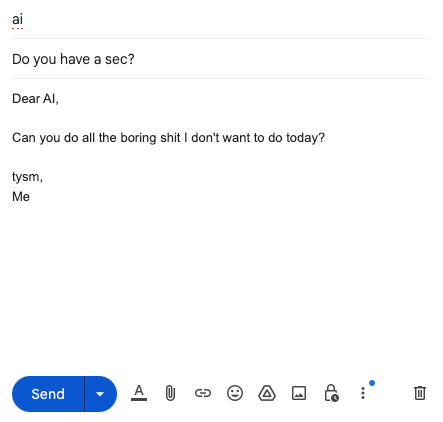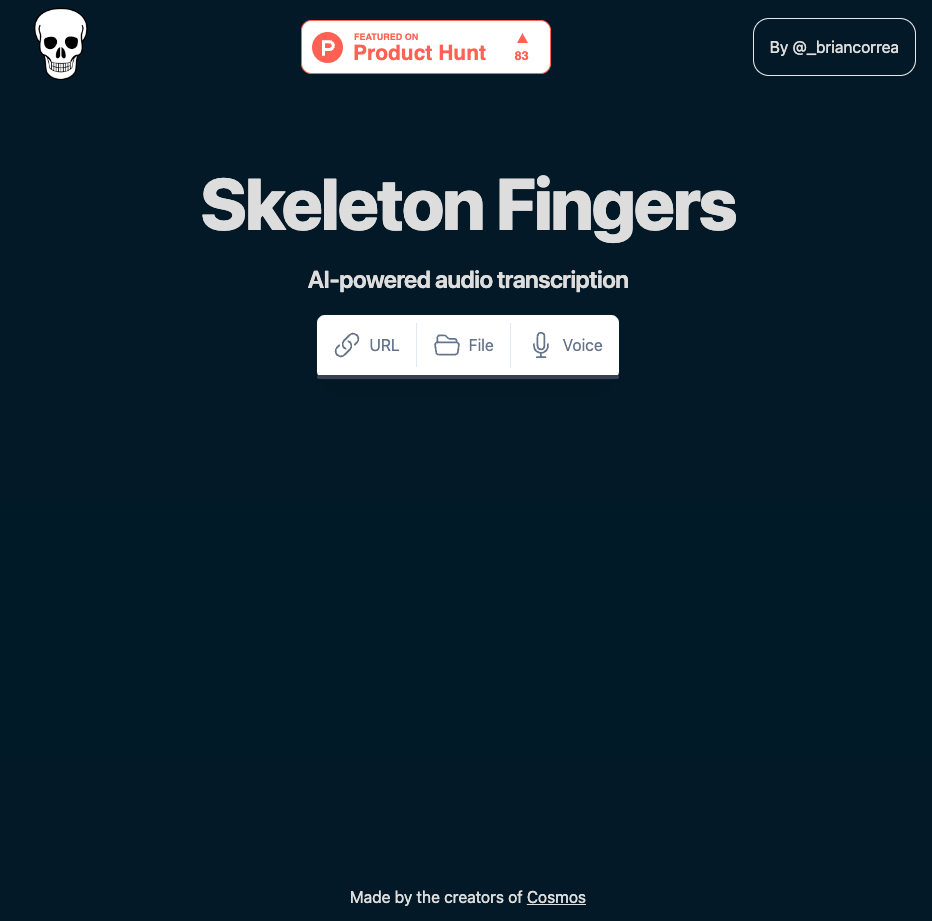I interviewed 45 white-collar workers about AI
🤖 What time do the robots get here?
This month I interviewed 45 white-collar workers about AI.
I asked them what parts of their jobs they thought could be automated or AI-assisted.
For the most part, people are eager to automate menial tasks like data-entry and updating different apps that don’t communicate.
I spoke to accountants, doctors, bankers, lawyers, administrators, engineers, and entrepreneurs.
Here are 27 things I learned:
People don’t use no-code automations like Zapier because it’s “too technical.”
Recent bad press has made lawyers hesitant to use AI for legal research and opinion writing.
There’s a surprising amount of admin work that goes into creating content. Creators need to manage scripts, calendars, content, and brand deals.
Automating document ingestion and review is a priority for everyone.
Large Language Models to train employees are a practical use-case.
Advertising and marketing firms already offshore a lot of campaign reporting.
Internal meetings are killing productivity. Can AI make this more efficient?
In-house legal teams are understaffed. They're often "brought in too late" to do their job effectively.
Companies are making a concerted effort to reduce manual overhead.
AI is well-positioned to take over internal company communications.
"Young, hungry" analysts will be expected to come in and automate.
AI-assisted documentation would save everyone a lot of time.
Accounts payable and accounts receivable are incredibly manual.
AI will change Big Law's business model. Eventually less work will be billed hourly and more will be done as a flat-fee that is mostly done by AI.
Everyone knows about AI. Few are actually using it to help them to do work.
Due diligence is mostly document review. AI-assisted reviews will make it easier to acquire companies.
Idea: AI-powered transcription and summary for meetings that integrates into existing knowledge-base tools.
One possible moat in AI is specialized models. It’s easier than ever to build a proprietary model for a vertical: plaintiff-side litigation, architecture, ad tech.
Administrative overhead is everyone’s least favorite part of their jobs.
You can’t throw AI at everything. Automating or assisting an existing workflow is a good place to start.
Large Language Models will enable custom workflows on demand.
The AI arms race is keeping costs low for companies building on top of GPT, Claude, and Gemini.
Extracting tabular from PDFs is hard. There might be a business in offering this as a service to other AI companies.
Using Large Language Models to generate lesson plans and course materials isn’t mainstream in education, yet.
A lot of people are “busy” but not getting enough done.
Most people agree that AI will make fewer mistakes.
Chatbots vs forms: would you pay a chatbot for a job a form could do?
Want to chat about AI?
If you’re interested in talking about AI and automations, let me know. I’d love to hear your perspective.
In the spirit of automation, we released an AI-powered audio transcription app. Skeleton Fingers.
Don’t transcribe anything, ever.
Thanks for reading. If you enjoyed this, please send it to a friend.




Did you find a pattern across industries/roles around who were more eager to leverage AI vs slower adopters?